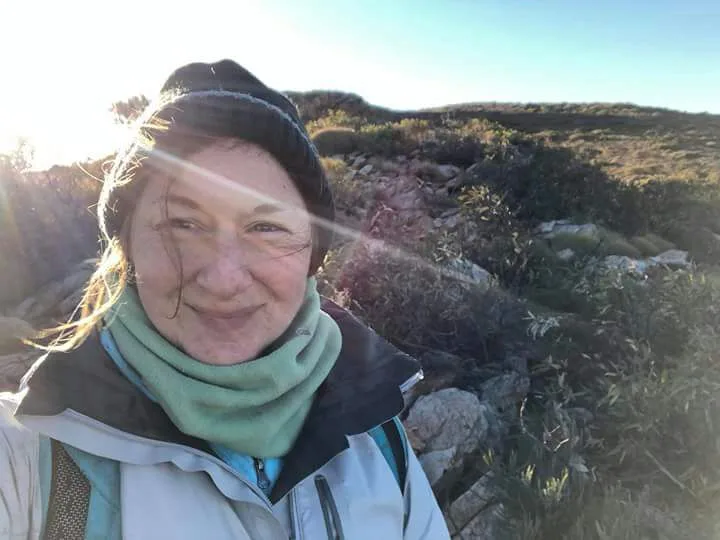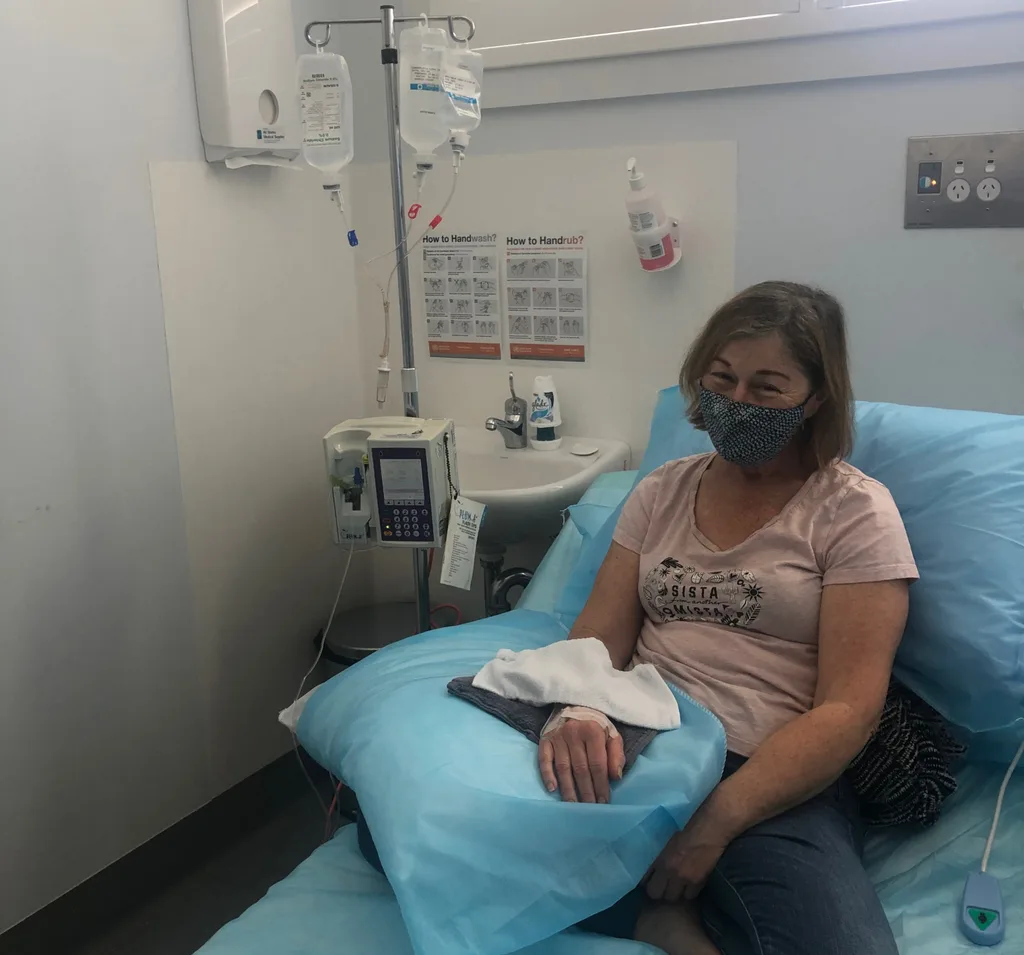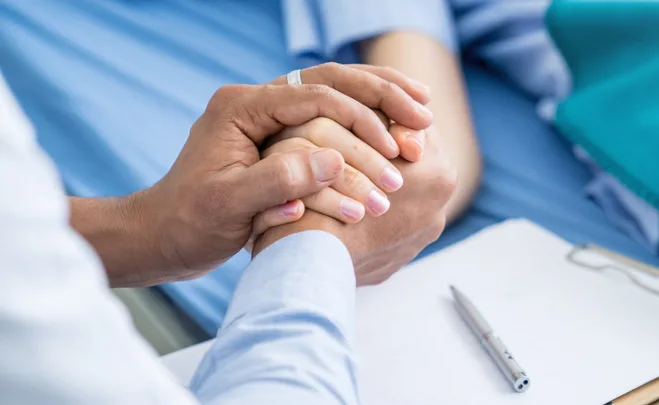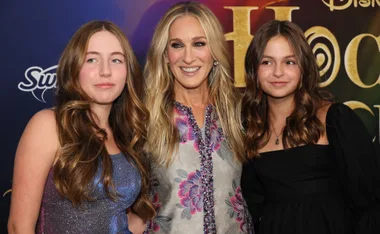Bonnie Cassen was first diagnosed with stage 3, hormone related breast cancer at the end of 2011. It led to her having a lumpectomy and an axillary clearance, as twenty lymph nodes were affected, and then chemotherapy. For the following two years, she had to take oral chemo.
Ten years have come and gone, and unfortunately Bonnie is facing cancer yet again, only this time it’s classified as Stage IV Metastatic Triple Negative Breast Cancer.
Her second diagnosis has come during the middle of a global pandemic and is a subtype that is the most aggressive of the breast cancers.
“I was getting a massage from a friend, and she said to me that I have a lymph node at the back of my neck and I should watch it. I felt it, and I realised it was hard. So, I researched and hard wasn’t a good thing so I was like ‘Okay, I’ll see if it goes away’,” she recalls.
“It started with one lymph node, and now we’re here.
“It took a long time to get a diagnosis. Everything has been so slow due to COVID, and it’s been a nightmare. I’ve been sick with a cold three times, so I’ve had to cancel appointments because you can’t go anywhere with a cold and every time my GP would send me for a scan, they would say go home [due to COVID].”

When Bonnie finally got an ultrasound, it confirmed there were raised lymph nodes and nothing more. However, scans showed nodules had appeared on her thyroid. She was sent to an ENT.
“It was so frustrating. I remember asking if this was the right person to see, and my GP said yes. He [the ENT] triaged his patients, so he kept me waiting for ten days. After he asked for a biopsy and a PET scan, he wouldn’t see me and took my case to a multidisciplinary team.
“He referred me to an oncologist who I previously had a bad experience with, so I had to start again.”
Bonnie journeyed to Sydney from the south coast of NSW to get a second opinion.
“I initially started hormone treatment after getting a second opinion. They wanted to do a full biopsy as I hadn’t had one done yet and that took two weeks, so when we did eventually get the results back, it turned out to be Triple Negative Breast Cancer.”
Of all breast cancers, 15 per cent are diagnosed as Triple Negative. It is the least understood subtype of the breast cancers, and there are a lack of treatment options and no targeted treatments available.
“I stopped the treatment I was on because it wasn’t going to work. It was wrong. During this time, I could feel more lymph nodes and more lumps, and then my [new] oncologist said you’re going to have chemo so you’re going to need a local oncologist.”
When it comes to a triple negative breast cancer diagnosis, time is of the essence and yet Bonnie’s experience with the health system has seen her climb mountains to reach a treatment plan.
She has been ping-ponged between doctors, had to manage her diagnosis during a global pandemic and juggle the challenges of living regionally.
“Between diagnosis to the start of therapy it took seven months. I started chemotherapy a few weeks ago and I went to the doctor in April to get my first referral,” she recalls.
“I’m classified as stage IV and metastatic. It’s spread to my bones and my liver. My PET scans show lymph nodes everywhere, on the outside of my lungs and right outside my heart. There’s also activity in my spine and pelvis. The bone scan and CT showed more activity in the bones in my sternum and ribs, and a couple of spots on top of my skull.
“In short, it’s growing fast,” she says.
“It’s a big thing to process. I got the results that said it was metastatic around June and it takes a while to sink in because you don’t know what that means at first. And the way that the breast cancer community works, is that stage 4/metastatic is hidden.
“Stages I, II and III, well, they say it’s a 95% success rate and people recover so that’s what they want to focus on, but stage IV… it’s not really seen or spoken of,” she says.

Breast Cancer is Australia’s leading cancer in women. Most of the nine types have a high survival rate due to early diagnosis and a myriad of treatment options. For Triple Negative Breast Cancer there is a great absence of treatment options, and the ones that are in place are outdated. The statistics are also widely different.
If caught early, there’s an 85 per cent change of survival. If caught late, the survival rate plummets to 25 per cent.
“I wasn’t thinking I feared death. But I did have to start thinking about providing for my children,” she says.
“It’s a lot of work, advocating for yourself and researching. It’s hard, but it’s doable.
“There’s a lot of unanswered questions when it comes to Triple Negative,” she says.
Triple Negative Breast Cancer is often referred to as the breast cancer to not google. However, those affected by it remain hopeful as further options will be made available now, and well into the future.
When asked what her future looks like, Bonnie is pensive.
“My future is really uncertain. If I’ve got one year or two years, or ten—I don’t know. I don’t know what my future is going to be. I don’t like the sound of being on chemo for the rest of my life,” she shares.
“In my head, I’ve got this plan that I’ll be doing this protocol for the next three months and they’ll be no evidence of disease and then I’ll live a long, healthy, fulfilled life. But also in my head, there’s the Facebook groups, where women are disease free and then it comes back everywhere in three months, because that’s what triple negative does.”
Breast cancer is the most common cancer affecting Australian women. According to Breast Cancer Network Australia, in 2021, it is projected that almost 20,000 people will be diagnosed with breast cancer of some type. That’s an average of 55 people per day.
Bonnie is sharing her story so that people not only aware of the realities of a Triple Negative Diagnosis, but also to highlight the importance of being your own advocate.
“Cancer affects everything. It’s challenging and convoluted, but you have to hold onto to hope.”
October is Breast Cancer Awareness month, a time to spotlight the importance of research to achieve better and more effective treatment options. To donate to the National Breast Cancer Awareness Foundation, visit their website here.










